Phone System for Healthcare
Designed to handle high call volumes, provide secure connectivity, and support multiple communication channels, a hospital phone system helps healthcare professionals stay connected when it matters most. With a phone system for healthcare, hospitals and clinics can streamline operations, enhance patient interactions, and ensure seamless collaboration across departments.
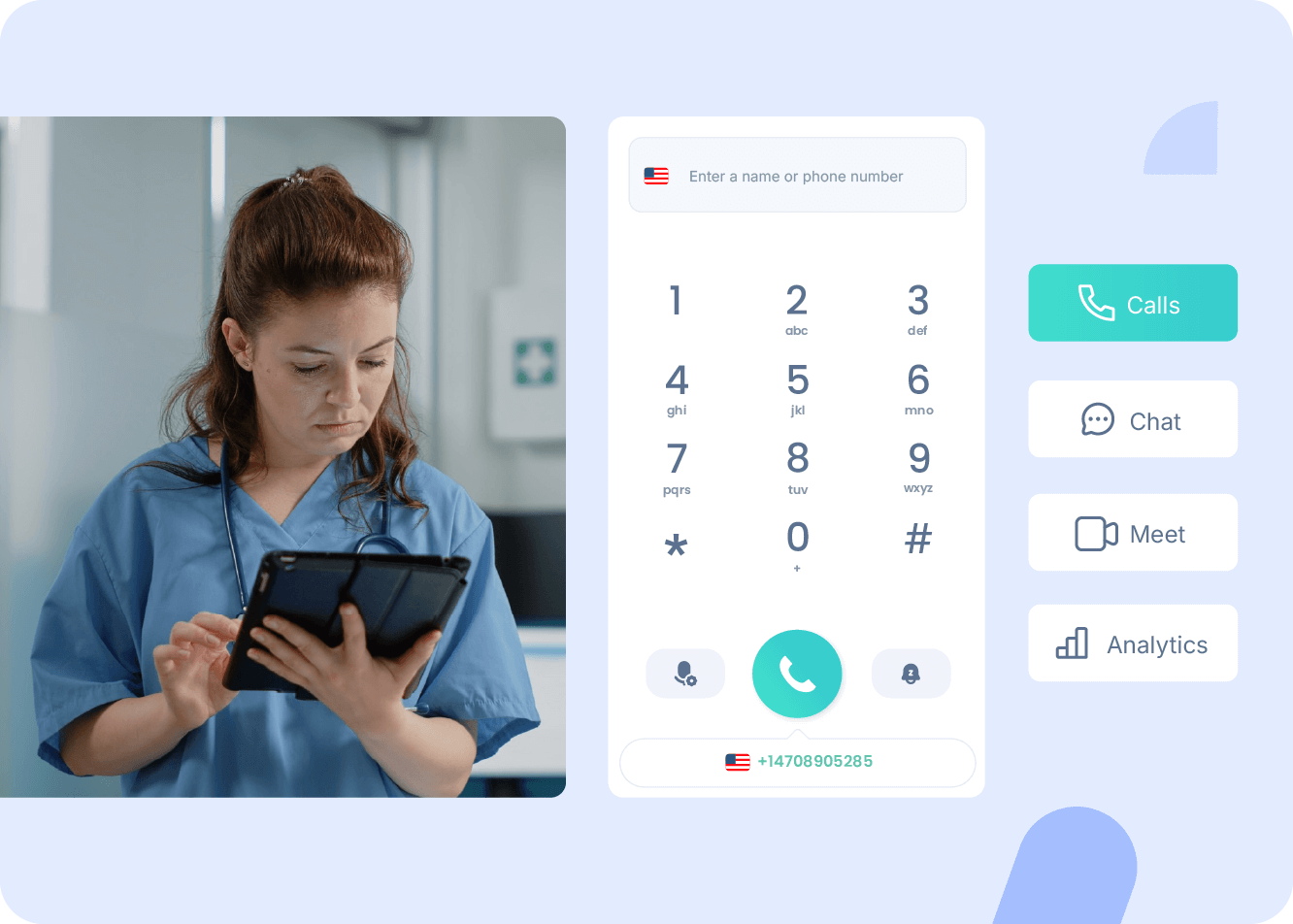
Why Do Hospitals Need a Phone System?
Reliable and Scalable Communication
Hospitals operate 24/7, requiring a phone system that can handle high call volumes and provide uninterrupted service. Ringover’s business phone system ensures reliable connectivity, enabling seamless communication between departments, staff, and patients without downtime or disruptions. Plus, patients can access information or staff they need by navigating through an IVR menu.
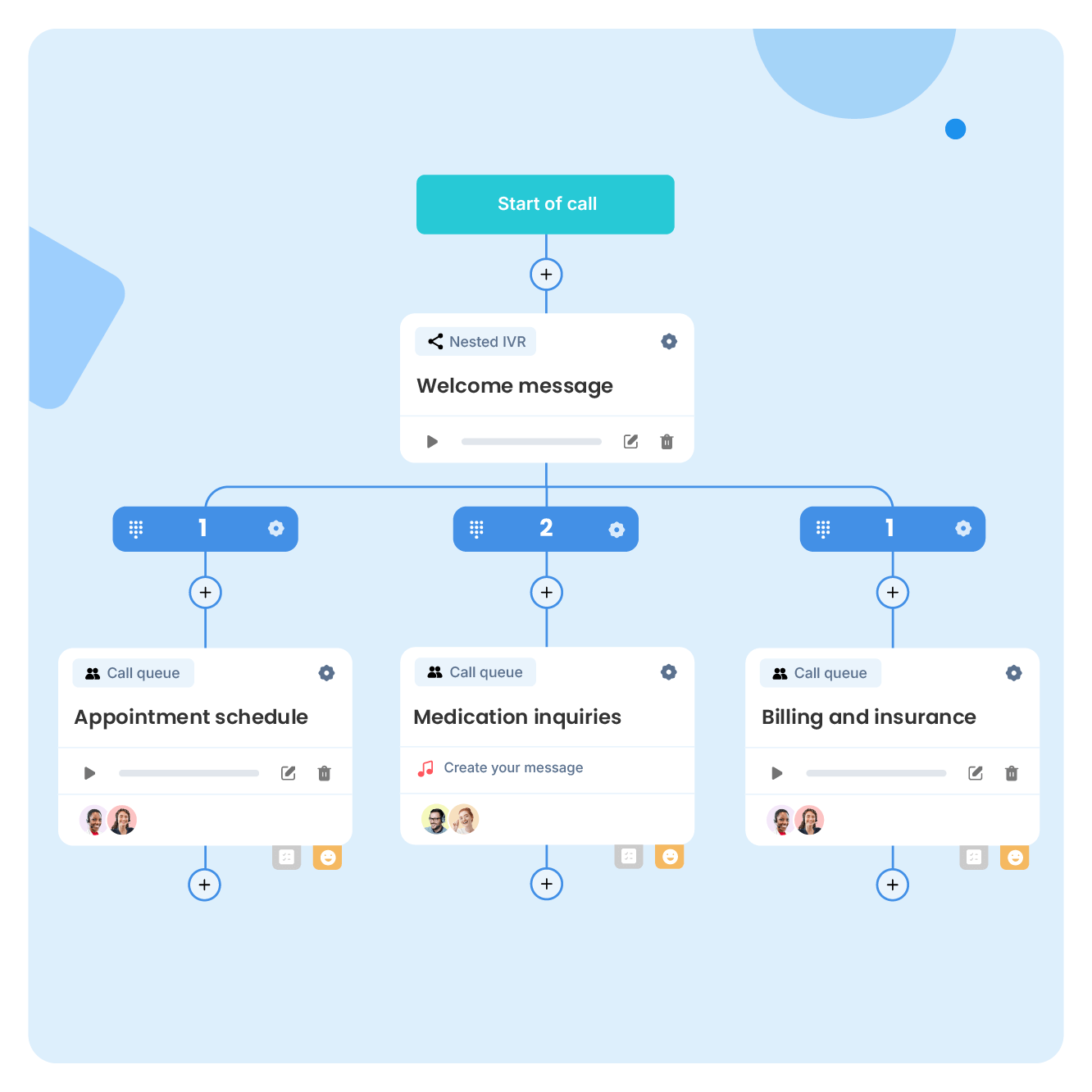
Smart Call Routing for Faster Assistance
With smart call routing, incoming calls are automatically directed to the right department or healthcare provider. Whether patients need to reach the emergency department, schedule an appointment, or contact billing, Ringover ensures that calls are answered quickly and efficiently.
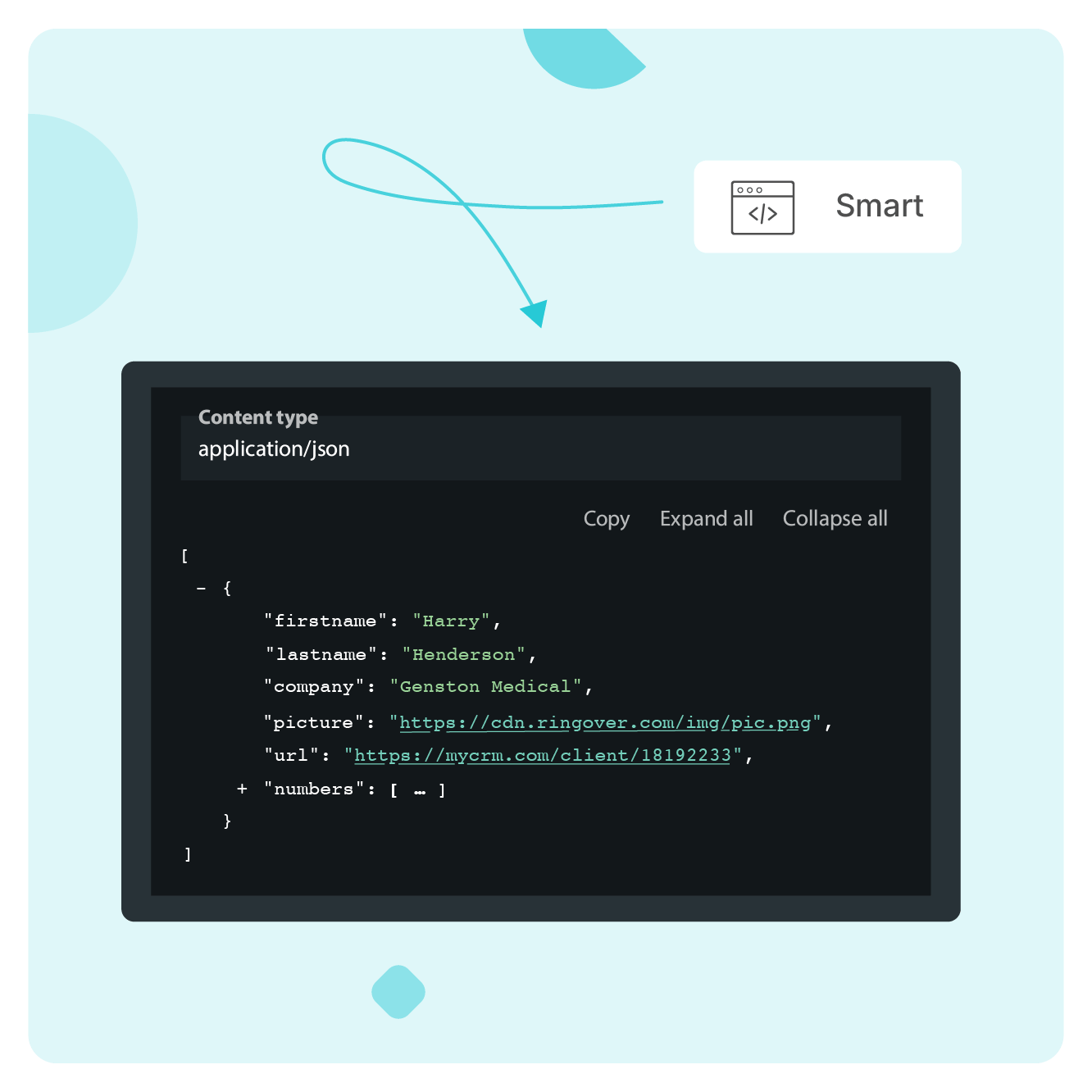
Conversational AI for Automated Assistance
Ringover’s advanced conversational AI helps in. This reduces administrative workload, allowing medical staff to focus on providing quality care while improving patient satisfaction.
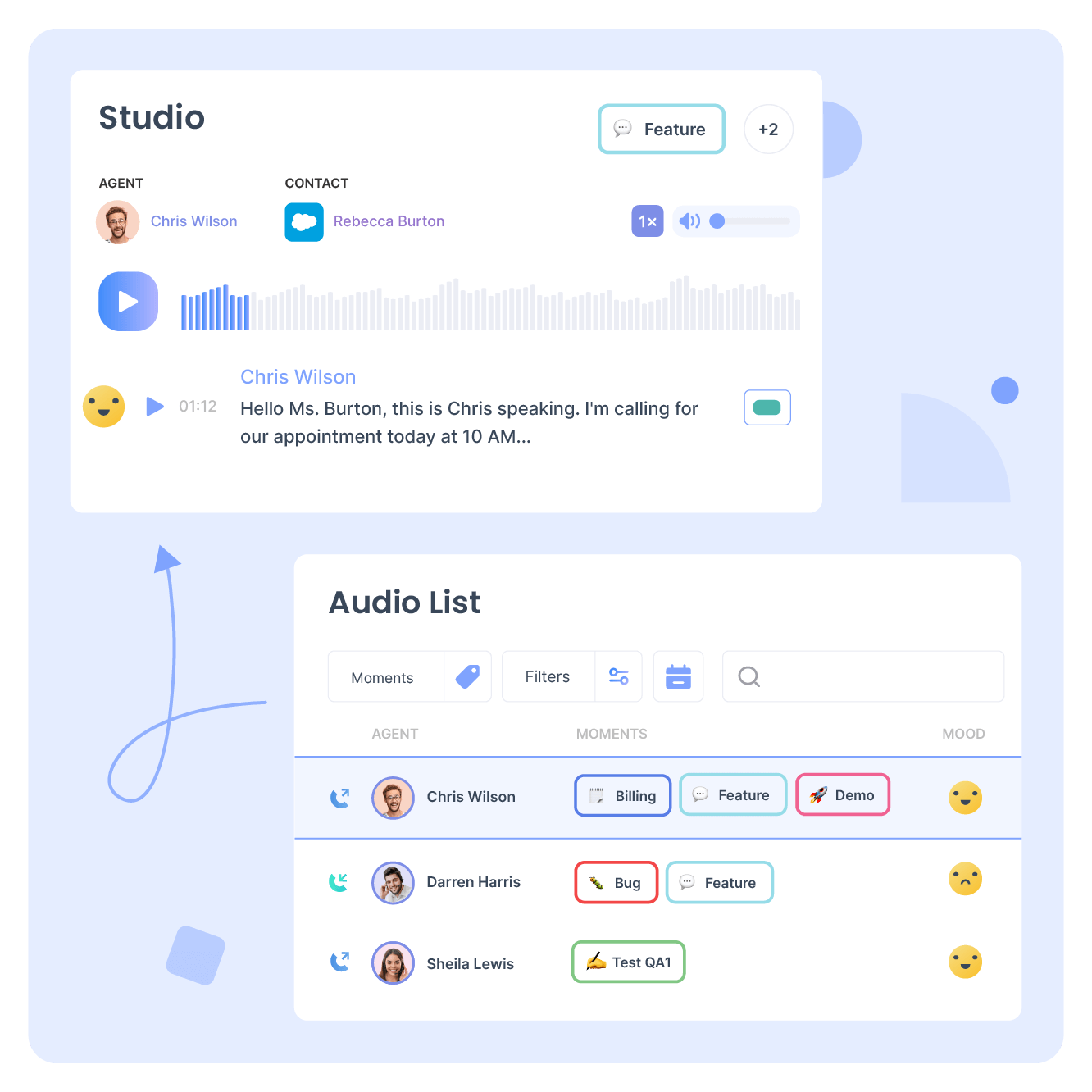
Omnichannel Communication for Patient Engagement
Healthcare professionals can communicate with patients through multiple channels, including unlimited phone calls, text messages, and video conferencing, all within a single platform. Ringover’s omnichannel software ensure that patients receive timely responses and personalized care, whether through voice or digital messaging.
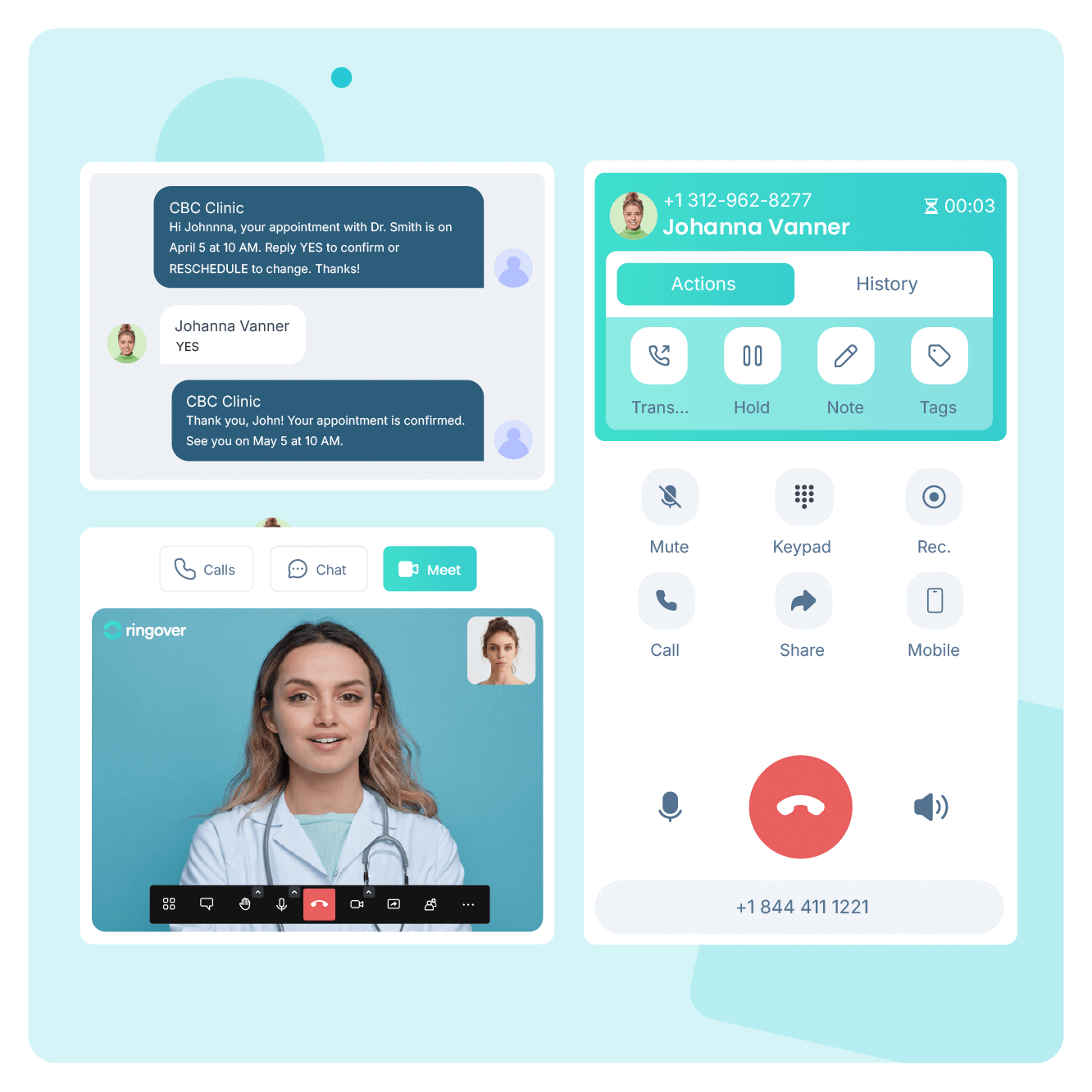
Seamless Integration with Healthcare Workflows
Ringover integrates effortlessly with CRM platforms and business tools, enabling hospitals to streamline workflows and improve efficiency. With automated call logging, real-time reporting, and analytics, healthcare teams can track patient interactions and optimize communication processes.
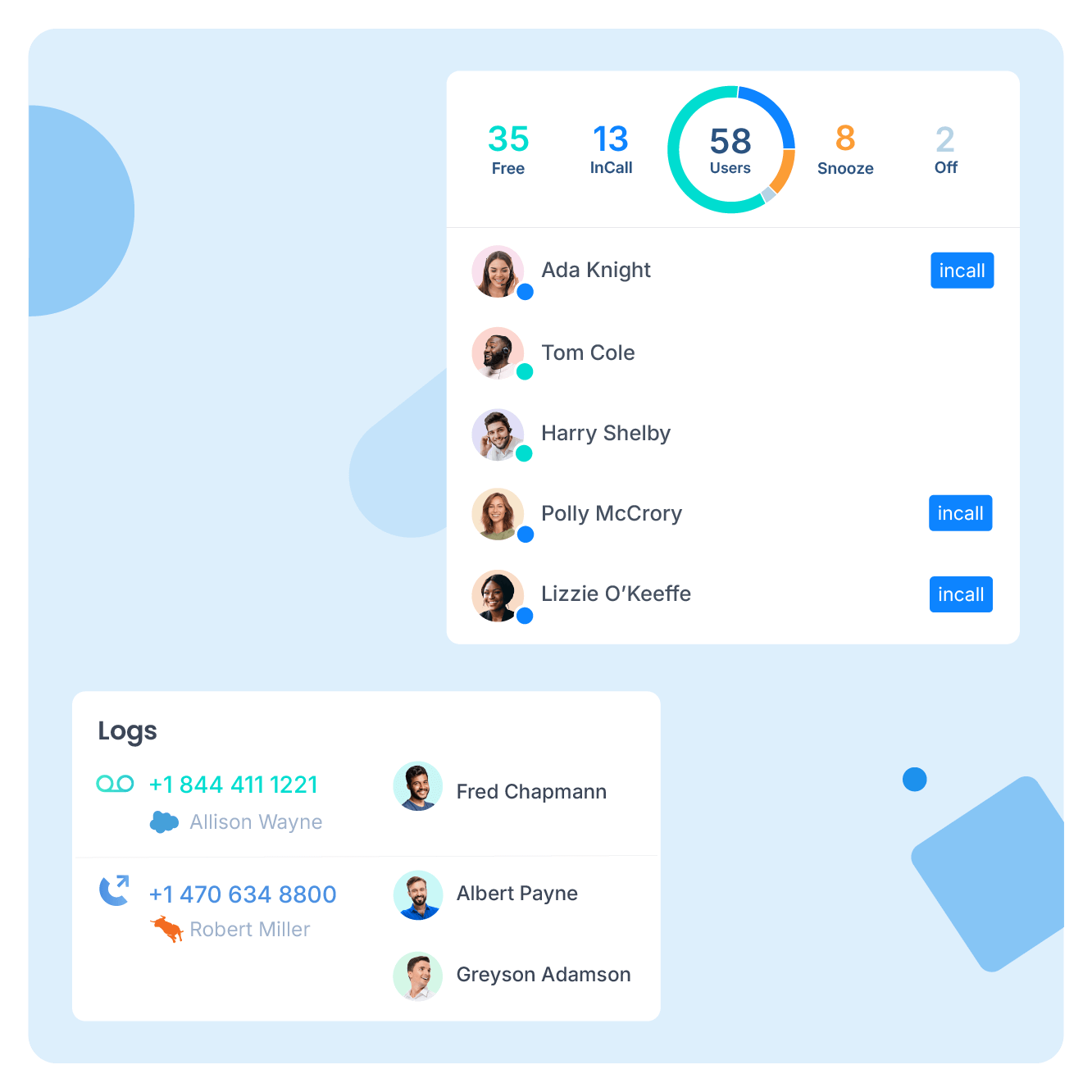
Secure and Encrypted Communication
In a hospital setting, sensitive conversations must remain private and secure. Ringover ensures encrypted voice and data transmission, providing a safe and confidential environment for patient communications, administrative coordination, and staff collaboration.
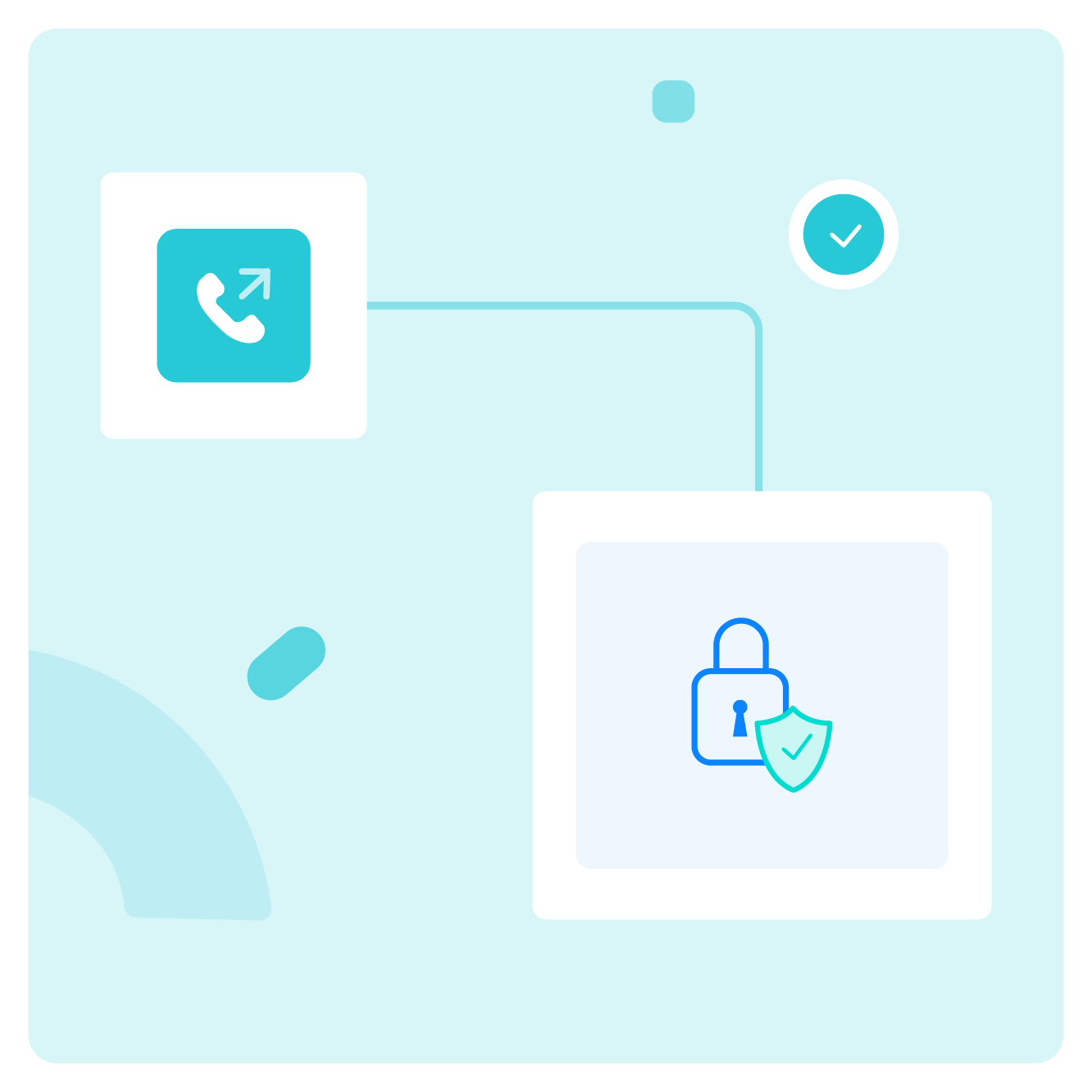
Phone System for Healthcare FAQ
- What phone system do hospitals use?
- What is a HIPAA-compliant phone service?
- How can I set up a phone system for my healthcare business?
- How does unified communications benefit hospitals and medical centers?
What phone system do hospitals use?
Hospitals typically use cloud-based hospital phone systems that offer high call reliability, scalability, and advanced features such as call routing, voicemail-to-text, and omnichannel communication. Solutions like Ringover provide seamless communication between departments, improve patient interactions, and help healthcare professionals stay connected 24/7.
What is a HIPAA-compliant phone service?
A HIPAA-compliant phone service is designed to meet the security and privacy requirements outlined in the Health Insurance Portability and Accountability Act (HIPAA). This includes encrypted communications, access controls, and data protection measures to safeguard patient information. While Ringover prioritizes secure communication, healthcare providers should consult their compliance teams to ensure full regulatory adherence.
How can I set up a phone system for my healthcare business?
Setting up a phone system for your healthcare business with Ringover is simple, and can be done in a day. Our cloud-based solution requires no complex hardware installations. You can:
- Choose a plan that fits your organization’s needs.
- Configure call routing, voicemail, and automated responses.
- Integrate with your existing workflow tools.
- Train staff to use the system for seamless communication.
- Start making and receiving calls across multiple channels.
How does unified communications benefit hospitals and medical centers?
Unified communications streamline hospital operations by integrating voice, video, and messaging into a single platform. This allows medical staff to:
- Communicate quickly across departments.
- Reduce wait times for patients.
- Automate administrative tasks with AI-powered assistants.
- Use omnichannel communication to engage with patients via calls, SMS, or video.
- Improve overall efficiency and collaboration within healthcare facilities.